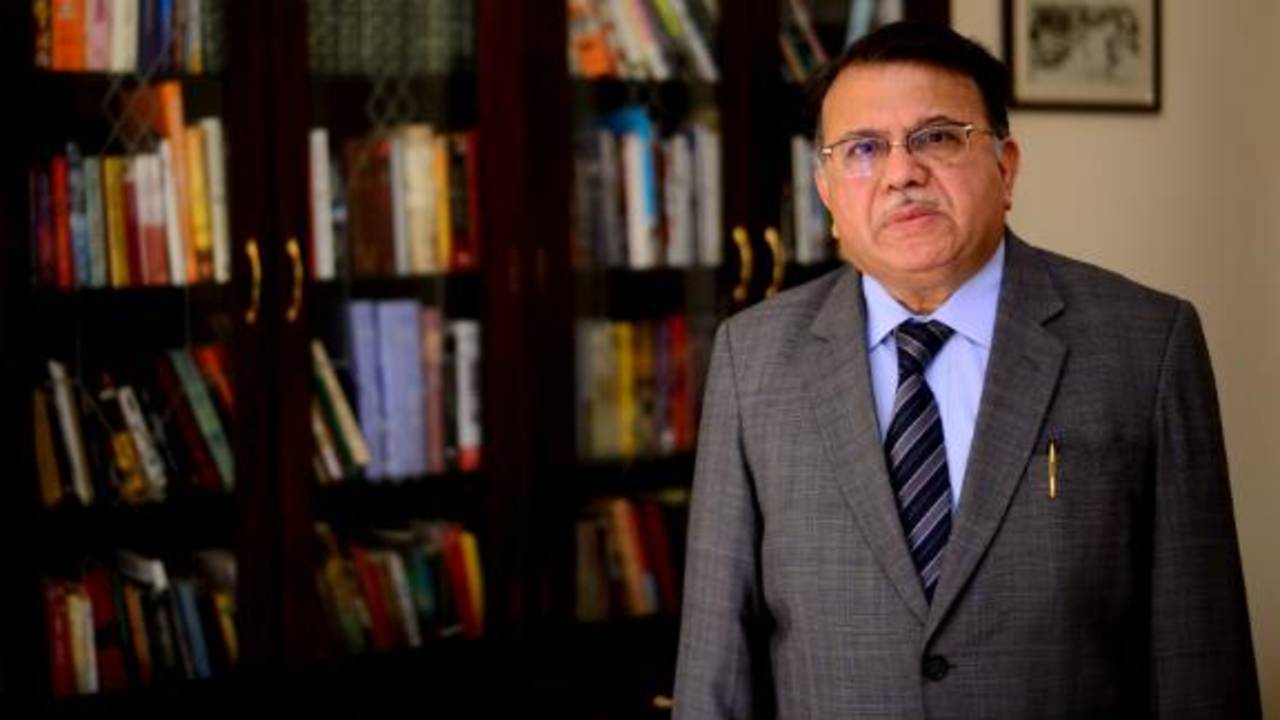Who is the BCCI-appointed ombudsman?
The BCCI has appointed its first ever ombudsman in Justice Ajit Prakash Shah, to look into matters relating to conflict of interest in the board
Raunak Kapoor
09-Nov-2015
At its Annual General Meeting in Mumbai on Monday, the BCCI appointed its first ever ombudsman in Justice Ajit Prakash Shah, to look into matters relating to conflict of interest in the board. Justice Shah, 67, a former Chief Justice of the Delhi and Madras High Courts, is widely considered as one of the boldest jurists India has witnessed in recent times, delivering landmark judgments in matters of societal equality, human rights, individual liberties, and freedom of speech and expression.
An ombudsman, or a "legal representative", is generally either a public official or an employee or member of an organisation who acts as an impartial intermediary between two parties.
In case the ombudsman is appointed by the government or his position is created by law, for example a Lokpal or a Lokayukta, the official often assumes the role of a watchdog, overseeing the activities of the government or bureaucracy and addressing the grievances of the public against them.
Ombudsmen are often considered institutions in themselves. Once appointed, they are free from procedural or technical complexities that most judicial or governmental bodies are subject to. They have the power to initiate proceedings without any approval, summon parties, direct appropriate bodies to conduct investigations, and in some cases even impose punishments of their own accord.
The scope of power, authority and jurisdiction of an ombudsmen, as well as the rules and procedures that he must follow, however, are all decided by the appointing authority. Therefore the ambit of Justice Shah's powers will be set in place by the BCCI itself.
A key component of the ombudsman's authority would be whether he has the power to initiate proceedings against individuals suo motu (on its own) and whether he is authorised to impose sanctions or punishments independently, without prior approval of the BCCI.
When asked by ESPNcricinfo about the freedom and influence that Justice Shah will enjoy, BCCI President Shashank Manohar said "he would be given complete freedom and authority like a judicial body".
However, the BCCI is yet to clarify, in detail, what the jurisdiction of and procedures to be followed by its ombudsman would be while initiating, hearing and deciding matters relating to conflicts of interest.
After retiring as Chief Justice of the Delhi High Court in 2010, Justice Shah has been the chairman of the Broadcast Content Complaints Council (BCCC) and the chairman of the Law Commission of India. Earlier this year, he turned down an offer from the Delhi government to be the state's Lokayukta (state ombudsman).
Justice Shah is considered the architect of the historic ruling in 2009 that struck down Section 377 of the Indian Penal Code, thus decriminalising gay sex in India. The judgment earned him national and international recognition. He is credited with other brave rulings including a Public Interest Litigation in 2004 where he imposed a fine of Rs 20 lakh on the Shiv Sena (the right-wing Mumbai political party that has a history of disrupting cricketing activities in India) for calling an "illegal" bandh (strike) in Mumbai. He delivered another landmark judgment in 2010, when he declared that the office of the Chief Justice of India is a "public authority" that falls within the ambit of the Right to Information Act, thereby making the country's top-most judge obliged to share details of his assets publicly as per the act.
At present, he serves as a member of the Committee of Experts at the International Labour Office in Geneva. As BCCI ombudsman, Shah can be contacted at ombudsman@bcci.tv.
Raunak Kapoor, a presenter at ESPNcricinfo, is also a qualified lawyer. He tweets @RaunakRK
